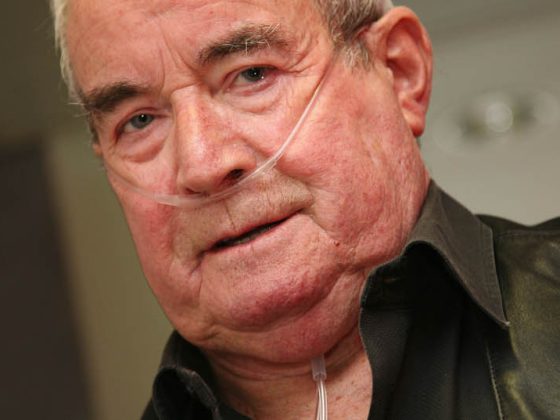Idiopathic venous thromboembolism may be early warning signs of tumor. According to older studies, up to 10% of those affected are diagnosed with cancer in the year following thrombosis [1]. A large randomized trial now tested the benefit of a comprehensive screening program. The results are sobering.
Currently, there is no uniform practice regarding cancer screening in patients with first-time idiopathic venous thromboembolism (VTE). Given the high probability of occult tumor, is an expanded screening program with CT of the abdomen/pelvis reasonable, as older studies suggest [1]? Will this result in fewer missed tumors or shorten the time to diagnosis or even reduce mortality?
These questions were addressed in a multicenter, open-label, randomized trial from Canada. In a large sample of 854 patients with first-time idiopathic VTE, we compared two screening strategies:
- Routine screening: history, physical examination, routine laboratory tests, chest x-ray plus age-adapted screening for breast, cervical, and prostate cancer (breast and gynecologic exam, mammography, PAP test, digital exam of prostate, PSA determination).
- Expanded screening: named exams plus CT of abdomen/pelvis, virtual gastroscopy and colonoscopy, and parenchymal pancreatography.
No difference in detection rates
The primary end point was newly diagnosed tumors within one year after VTE (excluding those already detected at screening). This indirect parameter was used to determine whether fewer diagnoses were missed with either screening strategy. However, there was no difference between the two groups in this regard: Slightly fewer tumors were missed with CT expansion, namely 26% (5 of the 19 tumors diagnosed) compared to 29% with the other strategy (4 of 14 tumors) – but this difference was not significant (p=1.0). Acute leukemias, gynecologic tumors, and colorectal cancers were missed most frequently.
Cancer-specific mortality and average time to cancer diagnosis also did not differ between the two strategies. In the CT group 0.9% of patients died of cancer, in the second group 1.4% (p=0.75). On average, it took 4 vs. 4.2 months to cancer diagnosis (p=0.88).
The authors concluded that adding CT of the abdomen/pelvis to routine screening did not provide a clinically significant benefit.
Is less more?
Overall, the rate of occult tumors was low in both groups (with CT 4.5%/without CT 3.2%, p=0.28), which may be due to the fact that this study included patients 18 years of age and older, rather than middle-aged and older as in other studies. The average age of 54 years was thus somewhat lower than in previous studies, which of course also affects the prevalence and thus the benefit of screening. However, this does not change the basic statement that more extensive screening does not significantly increase the detection rate. A similar conclusion was reached in another prospective study [2].
Ultimately, the question remains whether, in addition to current screening efforts for new-onset VTE, additional investigations are efficient to diagnose as many tumors as possible at early stages and thus reduce cancer-specific morbidity and mortality. At the moment, the trend is more in the direction of “less is more”.
In addition, if an unremarkable mammography or colonoscopy was performed only a few months ago, it is hardly necessary to repeat such an examination in view of the VTE. A consideration that is also reflected in the study: Breast, cervical, or prostate cancer screening was performed only if the patient had not already received such screening in the year preceding the VTE.
Screening is associated with anxiety
It should not be forgotten that in addition to the costs and radiation exposure, the psychological stress for the patient during screening is also considerable, which makes responsible use of screening measures all the more important. An extended screening program is conceivable, for example, in cases of explicit patient request or additional risk factors.
Source: Carrier M, et al: Screening for Occult Cancer in Unprovoked Venous Thromboembolism. N Engl J Med 2015 Aug 20; 373(8): 697-704.
Literature:
- Carrier M, et al: Systematic review: the Trousseau syndrome revisited: should we screen extensively for cancer in patients with venous thromboembolism? Ann Intern Med 2008 Sep 2; 149(5): 323-333.
- Van Doormaal FF, et al: Is extensive screening for cancer in idiopathic venous thromboembolism warranted? J Thromb Haemost 2011; 9: 79-84.
InFo ONCOLOGY & HEMATOLOGY 2016; 4(3): 2











